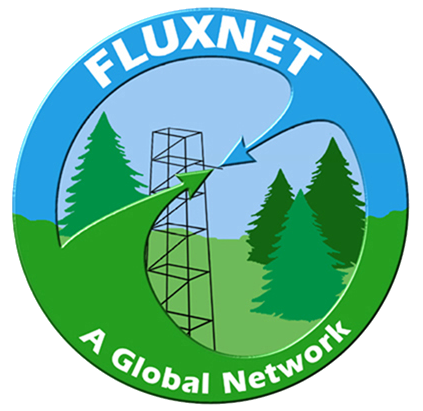Congratulations to the 2023 FLUXNET Secondment recipients!
| Recipient | Year | Host | Host Institution | Secondment Topic |
|---|---|---|---|---|
| Jiangong Liu | 2025 | Kuno Kasak | University of Tartu, Tartu, Estonia | Evaluating the biophysical and ecological consequences of rewetting peatlands |
| Mengze Li | 2025 | Johann Peter Rauch | The University of Natural Resources and Life Sciences, Vienna, Austria | Investigating changes in greenhouse gas fluxes and their environmental drivers of the Morava River wetland |
| Arman Ahmadi | 2025 | Silvia Caldararu | Trinity College Dublin, Dublin, Republic of Ireland | Enhancing the accuracy and generalizability of the QUINCY ecosystem model |
| KABI RAJ KHATIWADA | 2025 | Laëtitia Bréchet | INRAE – Unité Mixte de Recherche “Ecologie des Forêts de Guyane” (UMR EcoFoG) Campus Agronomique – BP 701 97387 Kourou cedex – Guyane française (French Guiana) | Methane emissions from forested wetlands |
| Beibei E | 2025 | Dr. Yusri Yusup | Universiti Sains Malaysia, Pulau Pinang, Malaysia | Advancing our understanding of coastal air-sea interaction by applying novel machine learning tools |
| Shashank Kumar Anand | 2025 | Prof. Antonio Celso Dantas Antonino | Federal University of Pernambuco, Recife, Brazil | Evaulating the performance of widely used gap-filling techniques for CO2 flux timeseries |
| Sumanta Chatterjee | 2025 | Elke Eichelmann | UCD School of Biology and Environmental Science, Dublin, Ireland | Developing Scalable Machine Learning Models for Evapotranspiration Partitioning in Wetlands and Flooded Ecosystems |
| Wantong Li | 2025 | Débora Regina Roberti | Universidade Federal de Santa Maria, Santa Maria, Brasil | Socio-climate-disturbance drivers of pan-Amazon carbon sink over twenty years |
| Blessing Kavhu | 2025 | Dr. Patrik Vestin | Department of Physical Geography and Ecosystem Science, Lund University, Lund, Sweden | Integrating remote sensing data with eddy covariance (EC) measurements to model carbon fluxes in forest and agricultural ecosystems in Africa |
Cheristy Jones (University of New Hampshire) | 2024 | Dr. Efrén López-Blanco | Greenland Institute of Natural Resources, Nuuk, Greenland | Linking terrestrial and aquatic carbon cycling in an Arctic catchment |
| David Miller (Cornell University) | 2024 | Sebastian Wolf | ETH Zurich, Zurich, Switzerland | How severe drought events affect future evapotranspiration and primary productivity |
| Patrick Cito Namulisa Colombia University | 2024 | Hans Verbeeck | Ghent University, Ghent, Belgium | Quantifying net ecosystem production and carbon/water cycling in the Congo Basin |
| Maricar Aguilos (North Carolina State University) | 2024 | Maria Lourdes G. Ferrer | Ecosystems Research and Development Bureau, Philippines | Establishing eddy covariance flux measurements in a Philippine forest ecosystem |
| Angela Che Ing Tang (University of Toledo) | 2024 | Michael Liddell | James Cook University | Characterizing critical zone soil hydrology and it's impact on evapotranspiration in tropical savannah |
| Ifekristi Ogunwobi (University of Florida) | 2024 | Dr. Gerbrand Koren | Utrecht University | Predicting nitrous oxide flux drivers using machine learning. |
| Mukund Rao (Columbia University) | 2023 | Dr. Tonantzin Tarin & Dr. Enrico A. Yepez | Universidad Nacional Autónoma de México (UNAM), Mexico | Environmental controls on carbon assimilation and its allocation to tree-growth. |
| Sophie Ruehr (University of California, Berkeley) | 2023 | Maurizio Mencuccini & Rafael Poyatos | Centre for Ecological Research and Forest Applications (CREAF), Barcelona, Spain | linking eddy covariance data from FLUXNET and sap flow data from SAPFLUXNET to quantify plant reliance on groundwater across individuals and ecosystems. |
| Helen Kenion (Penn State University) | 2023 | Dr. Dominik Brunner | Swiss Federal Laboratory for Materials Science and Technology (Empa), Dübendorf, Switzerland | Testing the use of Monin-Obukhov Similarity Theory (MOST) to estimate GHG fluxes from mole fraction measurements on a local scale in an urban environment. |
| Emma Reich (Northern Arizona University) | 2023 | Jacob Nelson | Max Planck Institute for Biogeochemistry, Germany | Evaluating SIF-T and SIF-GPP decoupling aross timescales and ecosystems. |
| Lewis Kunik (University of Utah) | 2023 | Dan Yakir | Weizmann Institute of Science, Rehovot, Israel | Exploring photosynthetic responses to warming and drying climate shifts in ENF biomes using the semi-arid Yatir forest in Israel as a case study. |
| Nic Katz | 2023 | Débora Regina Roberti | Universidade Federal de Santa Maria, Santa Maria, Brazil | Investigating the carbon balance of Pampa Biome Grasslands, Southern Brazil. |
| Justine Missik(The Ohio State University) | 2023 | Nadine Ruehr | Karlsruhe Institute of Technology (KIT)-Campus Alpin, Garmisch-Partenkirchen, Germany | Improving the representation of plant hydraulic behavior in vegetation and land-surface models. |
| Tristan Green(Boston University) | 2022 | Minseok Kang | National Center for AgroMeteorology, Seoul, South Korea | Quantifying forest fire disturbance on decreased carbon uptake in South Korea's KoFlux EC towers. |
| Mostafa Javadian (Northern Arizona University) | 2022 | William Woodgate | The University of Queensland, Brisbane, Australia | Assessing diurnal canopy temperature variation and its ability to track carbon uptake and water exchange across aridity gradients of southwest North America and eastern Australia. |
| Theresia Yazbeck (The Ohio State University) | 2022 | Oliver Sonnentag | Université de Montréal, Canada | Investigating the effect of tall shrub encroachment on vegetation composition, structure, and diversity and associated surface-atmosphere interactions at the Trail Valley Creek Research Station (FLUXNET Site ID: CA-TVC). |
| Julia Yang (University of Utah) | 2022 | Dr. Stefan Arndt | University of Melbourne, Melbourne, Australia | Impact of fire on the carbon and water flux dynamics of various forested ecosystems in Australia. |
| Ngoc Nguyen (University of California, Berkeley) | 2022 | Mirco Migliavacca | European Commission Joint Research Centre, Ispra, Italy | Developing satellite and flux-based estimates of ecosystem respiration that partition autotrophic and heterotrophic components. |
